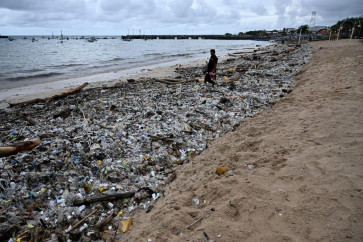Poor in virtually every aspect
The recent findings of bribery at the Sukamiskin Penitentiary in Bandung, West Java, and the arrests of chief warden Wahid Hussein and five other suspects apparently come as no surprise
Change text size
Gift Premium Articles
to Anyone

T
he recent findings of bribery at the Sukamiskin Penitentiary in Bandung, West Java, and the arrests of chief warden Wahid Hussein and five other suspects apparently come as no surprise. The cases not only confirm the rampancy of fraud behind bars but also reveal the dilapidated conditions within prisons here.
The arrest of Wahid and his five alleged partners in crime on July 21 and the concurrent finding of legal and procedural violations in the prison have corroborated earlier witness testimonies and reports that overcrowding, mismanagement and corruption have long plagued the country’s correctional system.
It has been an open secret that as long as they have the money to pay the wardens, inmates can retain the freedom to live a rich life in prison. They can even go outside of the prison for a certain price.
No studies have been conducted to trace how the corrupt system in prisons works, but thanks to press freedom, one of the fruits of the reforms since 1998, irregularities and mismanagement are visible. Previously, such information could only leave the prison walls through the testimonies of witnesses who happened to have the chance to go deep into the prison cells.
However, issues of corrupt officials, irregularities and mismanagement are not the only big problems in the country’s correctional system. As the Special Report in today’s paper shows, most penitentiaries across the country have borne the brunt of overcrowding, lack of proper health facilities and inadequate budgets, with disease, brawls and bribery being a common phenomena.
What’s more, poor sanitation, malnutrition and insufficient health services have led to a considerably high rate of detainee deaths. A two-year study conducted by a Jakarta-based legal aid institute, LBH Masyarakat, between 2016 and 2017 revealed that a combination of overcrowding, poor sanitation, malnutrition and inadequate health services was to blame for 120 detainee deaths in 2016 and 83 in 2017.
Undeniably, our prisons have been so poorly managed that it will require Herculean efforts from the government — and the whole nation — to reform the correctional system. It will be extremely difficult, time consuming and perhaps costly, but thorough measures must be taken sooner rather than later.









